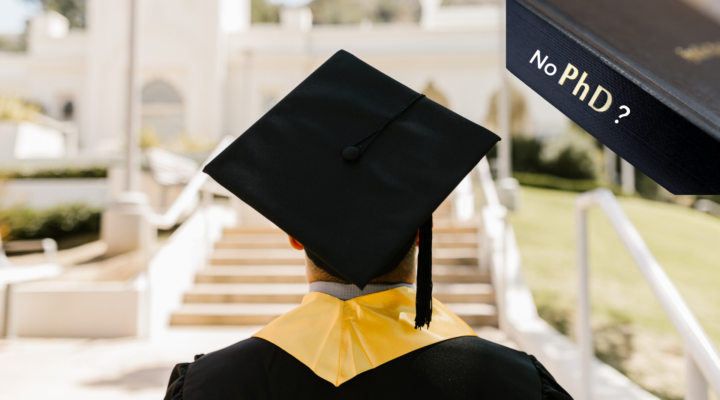When it comes to immigration pathways to the United States, the O-1 visa stands out as an exceptional option. Often dubbed the “visa for geniuses” or for those with “extraordinary abilities,” it is a specialized non-immigrant visa designed to accommodate individuals who have demonstrated remarkable skills in a range of domains—be it the sciences, arts, business, athletics, or education. While displaying academic prowess can have a bolstering effect on your chances for visa approval, advanced degrees are not exactly the end-all, be-all of your application. Let’s take a closer look at how you can secure an O-1 visa without a PhD.
Read how we helped our client obtain an O-1 visa, even without a PhD:
Can You Apply for an O-1 Visa Without a PhD?
There’s an assumption that to be considered “extraordinary,” one must have the highest level of formal education. In the United States, that’s accepted as the accrual of a Ph.D. While it’s true that an advanced academic degree can strengthen your application and provide more concrete proof of your expertise, it’s far from being the only pathway to eligibility. Having a Ph.D. isn’t a strict requirement for securing this type of visa. The O-1 visa program is more flexible than many realize, allowing for various ways to establish your extraordinary qualifications.
Common Career Paths for the O-1 Visa
The O-1 visa is highly sought after by a range of professionals:
- Computer scientists and engineers
- Actors
- Musicians
- Entertainers
- Athletes
- Scholars
- Healthcare professionals
- Independent contractors
- Tech Entrepreneurs
- Creative Professionals
- Business Professionals
- Athletes
- Writers
- Chefs
- Software Engineers
Many successful O-1 visa holders do not hold PhDs or even master’s degrees. Instead, they demonstrate a record of sustained national or even international acclaim through work experience, awards, high-profile projects, and other qualifying accomplishments.
Wondering if you qualify? The best way to find out is by scheduling a consultation!
O-1 Visa Criteria
It’s essential to understand the criteria set forth by the USCIS for the O-1 visa. The criteria differ for each of the different O-1 Visa classifications:
O-1B (Arts) - Individuals with Extraordinary Ability in the Arts
To be eligible for an O-1B, you must have been awarded a significant national or international award or prize in the particular field (such as an Academy Award, Emmy, Grammy, or Director’s Guild Award) or or at least three of the following:
- Evidence that the beneficiary has performed, and will perform, services as a lead or starring participant in productions or events which have a distinguished reputation as evidenced by critical reviews, advertisements, publicity releases, publications, contracts, or endorsements
- Evidence that the beneficiary has achieved national or international recognition for achievements evidenced by critical reviews or other published materials by or about the beneficiary in major newspapers, trade journals, magazines, or other publications.
- Evidence that the beneficiary has performed, and will perform, in a lead, starring, or critical role for organizations and establishments that have a distinguished reputation evidenced by articles in newspapers, trade journals, publications, or testimonials.
- Evidence that the beneficiary has a record of major commercial or critically acclaimed successes as evidenced by such indicators as title, rating, standing in the field, box office receipts, motion pictures or television ratings, and other occupational achievements reported in trade journals, major newspapers, or other publications.
- Evidence that the beneficiary has received significant recognition for achievements from organizations, critics, government agencies, or other recognized experts in the field in which the beneficiary is engaged. Such testimonials must be in a form that clearly indicates the author's authority, expertise, and knowledge of the beneficiary's achievements.
- Evidence that the beneficiary has either commanded a high salary or will command a high salary or other substantial remuneration for services in relation to others in the field, as evidenced by contracts or other reliable evidence.
According to USCIS, if the listed criteria are not readily applicable to the beneficiary’s occupation, the petitioner may submit comparable evidence to establish the beneficiary’s eligibility
O-1B (MPTV) - Individuals with Extraordinary Achievement in Motion Picture or Television (MPTV)
To be eligible for an O-1B (MPTV), the beneficiary must have demonstrated a record of extraordinary achievement in motion picture or television productions and is coming to continue to work in such productions. However, the productions need not require someone with a record of extraordinary achievement.
- Supporting documentation must also have either a significant national or international award or prize in the particular field (such as an Academy Award, Emmy, Grammy, or Director’s Guild Award) or at least three of the evidentiary criteria described in the above accordion.
- According to USCIS, if the listed criteria are not readily applicable to the beneficiary’s occupation, the petitioner may submit comparable evidence to establish the beneficiary’s eligibility
A Clearer Path to U.S. Immigration
If you are struggling to put together a comprehensive O-1 application, consider seeking guidance from an immigration attorney. With over a decade of experience, VisaNation is always ready to offer O-1 visa help to individuals starting the process.
Building a Strong Case For an O-1 Visa Without a Ph.D.
You can qualify for the O-1 visa without a traditional academic background by proving your extraordinary abilities with the right documentation and preparation. Make sure to consult with an immigration attorney to tailor your application effectively.
How Professional Awards Strengthen Your O-1 Visa Application
What to Do: Don’t underestimate the power of accolades. Whether you’ve received a “Person of the Year” award from an industry magazine or a specialized trophy for innovation, all such recognitions count.
What to Include: Prepare a portfolio that includes the awards, the criteria for receiving them, and why they are significant in your field. Press releases, media coverage, and any accompanying documentation can make your case stronger.
Ex: Film festival awards, fashion awards, graphic design competitions, startup competitions, and even innovation awards.
The Importance of Membership in Professional Associations
What to Do: Memberships aren’t just for networking; they can demonstrate your extraordinary capabilities. Focus on associations that are selective and require proven competence for membership.
What to Include: Include any certificates of membership and outline the qualifications needed for entry. If you’ve been an active member, that’s even better. Include any contributions you’ve made to the organization, such as published articles, speaking engagements, or committee roles.
Ex: Invite-only groups for top executives, like Forbes Coucil.
Published Material Can Boost Your O-1 Visa Eligibility
What to Do: Publications that feature you or your work can substantiate your claim for the O-1 visa. Include both academic journals and mainstream media where your expertise is acknowledged.
Documentation: Collect copies of these publications and, where possible, highlight the sections that pertain to you. If the materials are not in English, have them translated and certified.
Ex: Articles in Times, Vogue, TechCrunch, Forbes, ESPN or even documentaries created about you.
Showcasing Original Contributions
What to Do: Your original work should show a high level of expertise and substantially contribute to your field. This can be anything from a patented invention to a marketing strategy that generated unprecedented ROI.
Documentation: Showcase your work through case studies, project reports, or portfolio elements. Use metrics and data to quantify your contributions. Testimonials from clients or colleagues who can vouch for the impact of your work can also be included.
Ex: Creating your own original app, culinary innovations, or groundbreaking scientific research.
Using Expert Reviews and Recommendation Letters to Support Your O-1 Visa
What to Do: Request recommendation letters from respected individuals within your industry. These letters can offer a subjective but insightful view of your expertise and accomplishments.
Documentation: Each letter should be detailed and specific about your extraordinary abilities and contributions. It should also provide context on the recommender’s own expertise so the USCIS can gauge the weight of the recommendation.
Ex: Letters of recommendations from previous employers speaking on your behalf.
Prove Financial Success to Obtain O-1 Visa without a PhD
What to Do: Your earnings can strongly indicate your success and extraordinary ability. High salaries, bonuses, and other forms of compensation can be highlighted.
Documentation: Collect payslips, tax returns, contracts, or any letters from your employer that indicate your high remuneration compared to industry standards. Comparative industry salary data can also strengthen your case.
Ex: You can show speaking fees for multiple conferences that you spoke at.
Highlight Your Experience as a Judge or Panelist
What to Do: Being asked to judge others in your field implies that you have superior expertise. List all instances where you have served as a judge, reviewer, or panelist.
Documentation: Include event brochures, invitation letters, and photographs, if available, to prove your participation. Any feedback or recognition you received for your role can be added as well.
Ex: Panelist/Judge at a creative competition or industry pitch event
Proving Special Skills or Recognition
What to Do: Special training, certifications, or skills that are rare and valuable can bolster your application. The same goes for patents or proprietary methodologies you’ve developed.
Documentation: For skills or special training, provide certificates or other proof of mastery. For patents, include patent documentation, and for proprietary methodologies, provide a detailed explanation and any available supporting documentation.
If you do happen to have a Ph.D., that’s great! Check out this guide on O-1 Visa for PhD Holders.
Strengthening Your O-1 Visa Application Without a Ph.D.
Obtaining an O-1 visa without a PhD is possible if you demonstrate exceptional skills and achievements in other areas. The best way to establish your eligibility for an O-1 visa is to emphasize your achievements in your field, including professional awards, memberships, published works, original contributions, primary profession, and expert recommendations. Also, showing financial success and experiences as a judge or panelist can further strengthen your application and show you are an authority in your particular discipline. Speak to one of our immigration attorneys today to discuss your O-1 visa application with us.
 Keenan Ennis
Keenan Ennis  Shilpa Malik
Shilpa Malik 
